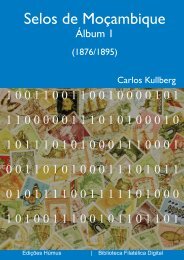dp0609 - FEP - Universidade do Porto
dp0609 - FEP - Universidade do Porto
dp0609 - FEP - Universidade do Porto
Create successful ePaper yourself
Turn your PDF publications into a flip-book with our unique Google optimized e-Paper software.
than other auditors, which can be interpreted as consistent with the view that<br />
their auditing work is of higher quality.<br />
Francis and Krishnan (1999) show that the Big 4 are more conservative<br />
than other auditors given that, for a given high level of accruals the probability<br />
is higher that a modified opinion will be issued. This suggests that these<br />
auditors interpret the existence of a high level of accruals as more risky,<br />
leading auditors to issue a modified opinion in order to signal to third parties<br />
the existence of potential problems which may affect the value of assets and<br />
the continuity of the firm’s operations.<br />
Somewhat in contrast with the evidence mentioned above, Dechow et<br />
al. (1996, p. 21) <strong>do</strong> not find significant relationship between the fact that a firm<br />
has been audited by one of the largest auditing firms and its characterization<br />
as an earnings manipulator. In fact, the authors report that the auditor type is<br />
not statistically different between the two kinds of firms (earnings manipulators<br />
or not).<br />
Another issue which has been studied in the literature relates to<br />
corporate governance concerns. Some authors take the perspective that an<br />
auditor should evaluate the corporate governance structure of its clients and<br />
incorporate such evaluation in their auditing planning and in the associated<br />
risk. The reasoning is that an inappropriate governance structure might be a<br />
risk factor for the auditor and even sometimes a reason for refusing a<br />
particular risky client (Cohen e Hanno, 2000; Cohen et al., 2002; Bedard e<br />
Johnstone, 2004).<br />
3. Research hypotheses and metho<strong>do</strong>logy<br />
In figure 1 the major literature framework for our study on accounting is<br />
summarized with the emphasis being made on the relationship between<br />
accounting information quality and board characteristics.<br />
We view the issuance of a modified opinion by an auditor as a<br />
symptom of lower information quality. A “clean” opinion will be that which is<br />
clear from any audit qualifications or emphases, or with emphases which can<br />
be viewed as unrelated to fundamental uncertainties as will be clarified later.<br />
In practical terms, we shall consider as a modified audit opinion the following<br />
cases:<br />
10


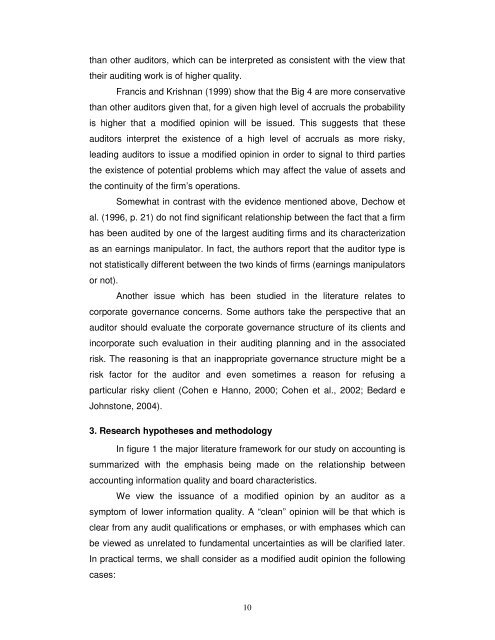
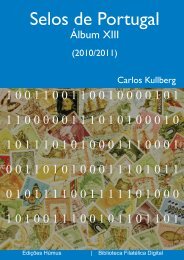
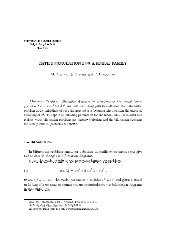
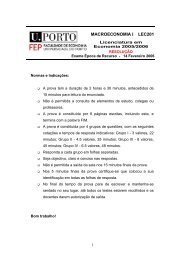
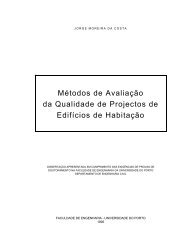
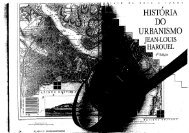
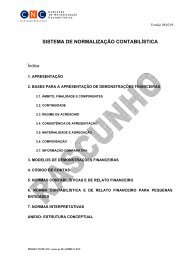
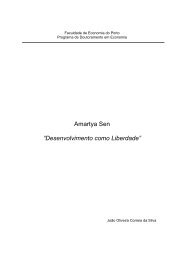
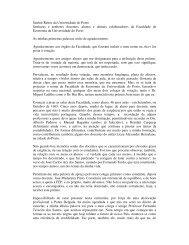
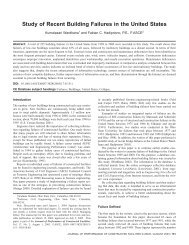
![Republica [Popular] de Moçambique. As Alterações Toponímicas e ...](https://img.yumpu.com/20789614/1/184x260/republica-popular-de-mocambique-as-alteracoes-toponimicas-e-.jpg?quality=85)


